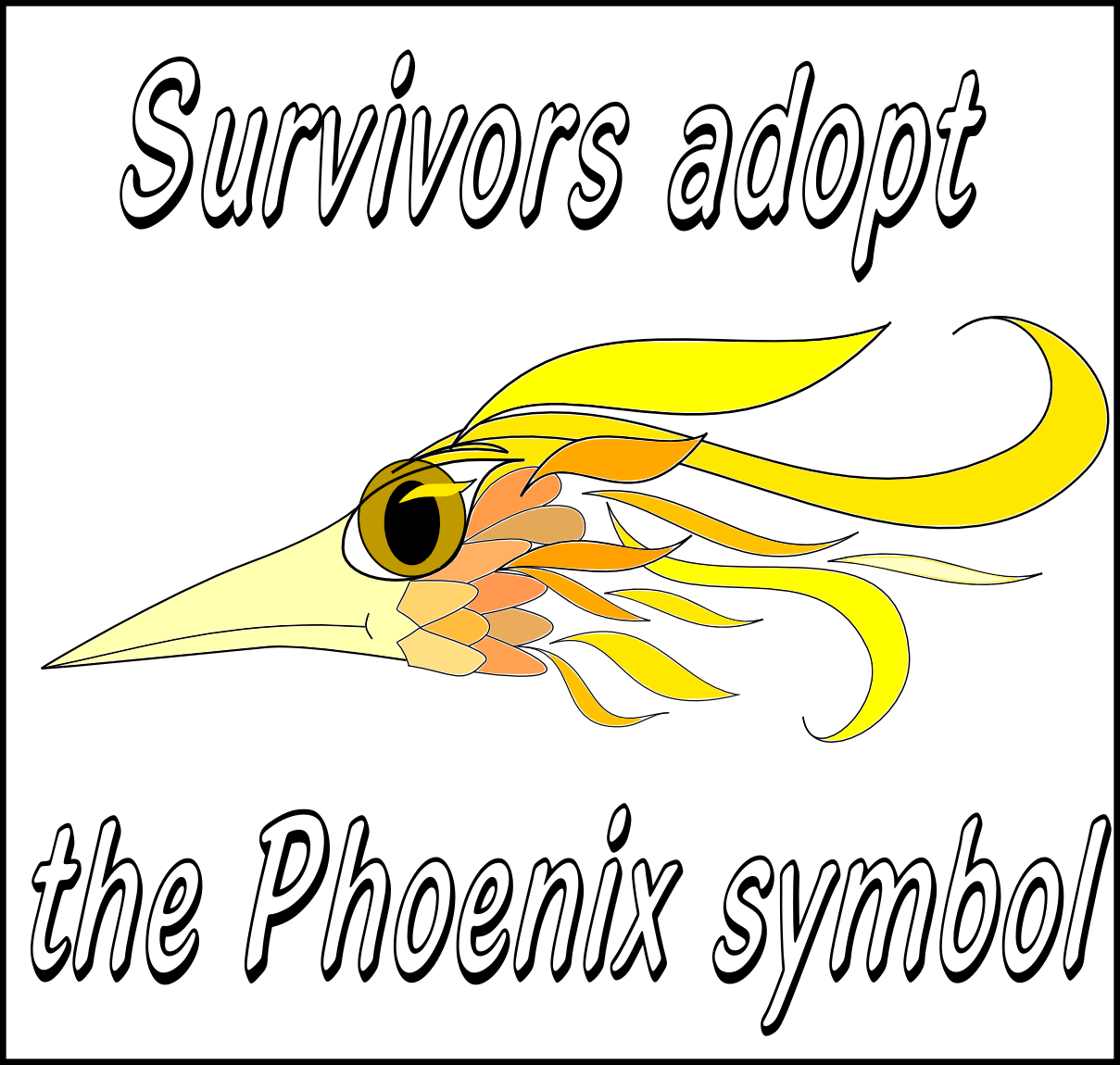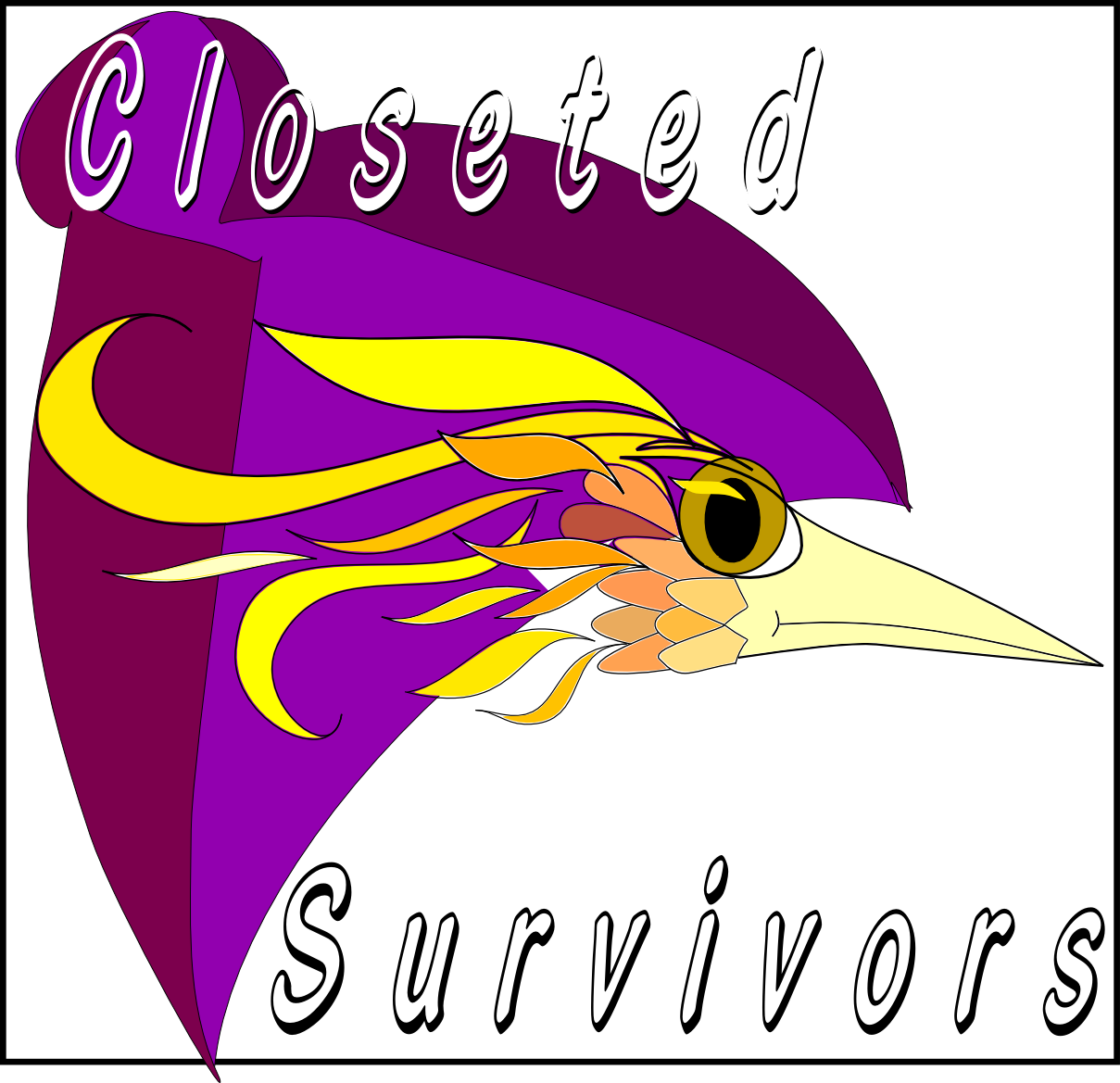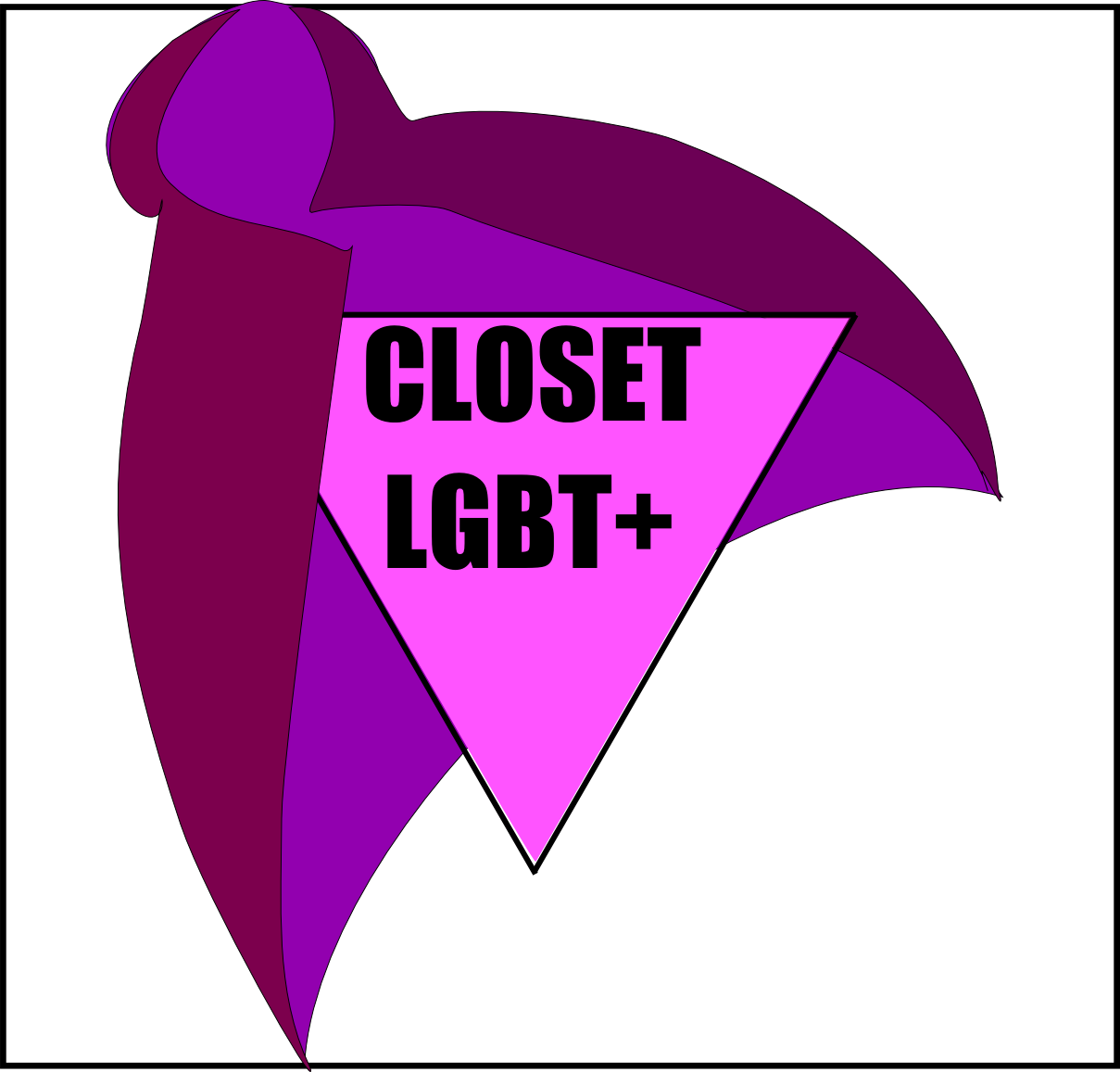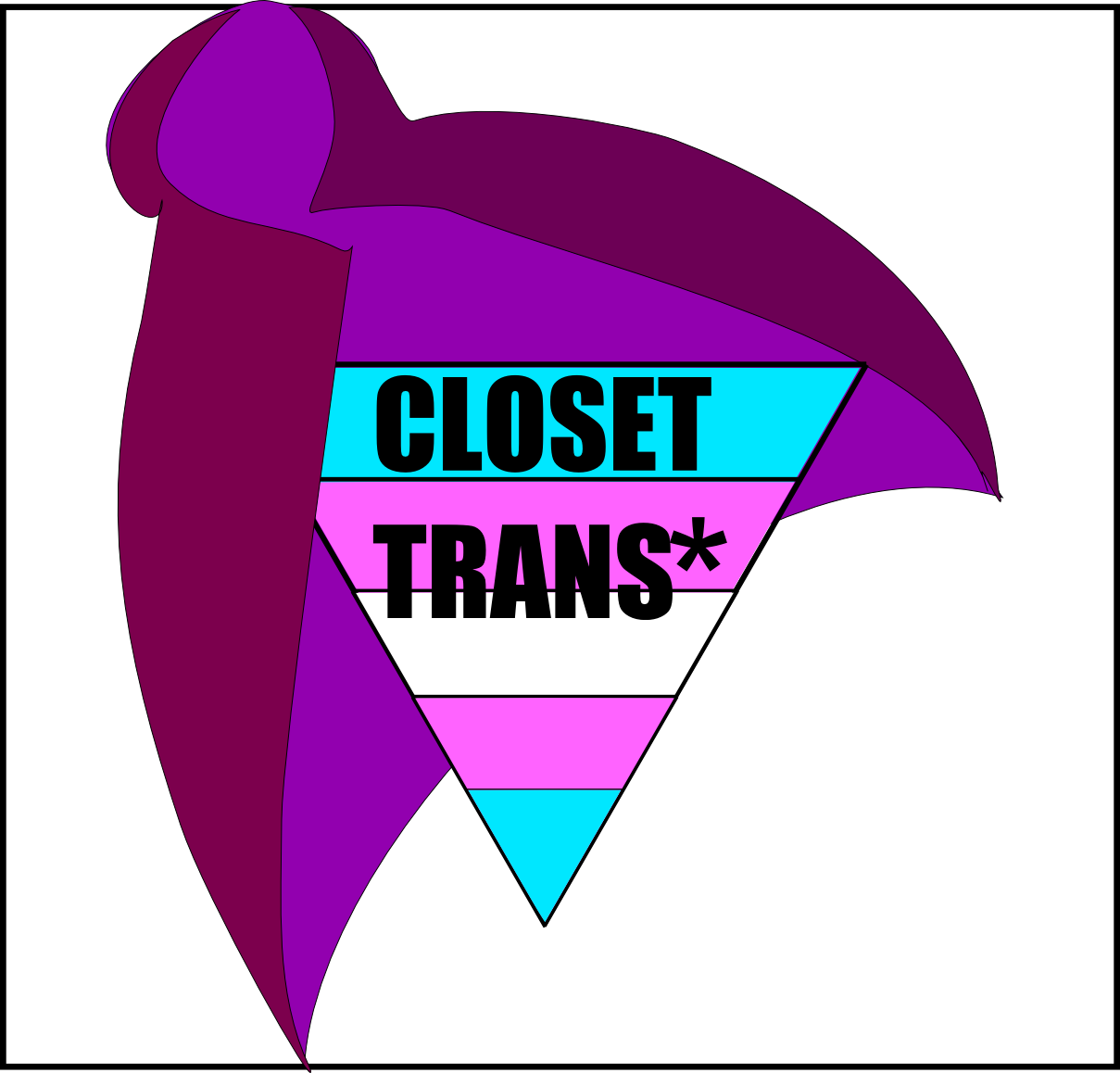 Survivor and Closeted: interlinked enough for only joint support to be widely effective.
Survivor and Closeted: interlinked enough for only joint support to be widely effective.

 Survivor and Closeted: interlinked enough for only joint support to be widely effective.
Survivor and Closeted: interlinked enough for only joint support to be widely effective.





Preamble
Adequate support of Closeted people and of Survivors involves so many interconnections that joint conceptualization, awareness and response is very likely to be essential.





Principle 1) It is all Closeted people who get to define what Closeted people are, and it is all Survivors who get to define what Survivors are.
Principle 2) Survivors and Closeted people are both very diverse, largely invisible, are not group forming, coming rather in very many isolated pockets.
Principle 3) A broad notion of Survivor is someone who's been badly hurt by one or more others' either extreme or repeated unwanted actions.
These include rape and sexual assault, but are not limited to these, or to conventional views about what 'sexual' or 'assault' mean.
Principle 4) A broad notion of Closeted involves not being out about whatever.
It does not have to be about being LGBT or some 'LGBT+' extension of that.
Eg some people are Closeted about mental health.
Interconnections between Survivors and Closeted people include the following.
Interconnection 1) Principles 1) and 2) have much common ground.
Interconnection 2) Most Survivors are Closeted.
Interconnection 3) Principles 3) and 4) are both based on Survivors and Closeted people being very little understood. This is even to the point that people, groups and services (claiming to be) supportive of one or both of these are in fact excluding a large majority of them by having too preconceived and too narrow-minded an idea of what Closeted people and Survivors are. Hint: many of those excluded are largely invisible, far too afraid of what 'official groups' do and of how these are run to dare to approach such, even on those few occasions that these groups not only have enough good faith but also know how to set up an actually highly anonymous form of feedback.
Discussion 1) People, groups and services who don't understand that the usablity of a communication channel depends on the good faith and safety and security know-how of those setting up and running the channel are unlikely to be seen as approachable by most vulnerable people. These include many Survivors and Closeted people; these also include increasing proportions of the worst-affected. E.g. caught in domestic violence, or raped repeatedly, not to mention abused by peers of the people, group or services in question. Many so-called 'welfare people' have been highly abusive and threatening toward people who are different in ways not yet accepted at that point in time.
Trans people were once mistreated in that manner essentially everywhere, and still are in some places. Ace, Aro, Poly, BDSM, Subculture, Geek ... people still are widespreadly mistreated. This includes by invalidating these characteristics of ours as 'irrelevant because of their not being legally protected'. Veteran Trans people have this to say at this point 'That's how many such mistreated us, until they ceased to dare to through becoming illegal. But many such places have not learnt the wider lesson of listening to what actually matters to each person, and so continue to get away with doing the same to Ace, Aro, Poly, BDSM, Subculture, Geek ... people.' As such, many people whose personal problem cannot be properly understood without mentioning the Ace, Aro, Poly, BDSM, Subculture, Geek ... aspect to it are not daring to tell welfare people about that part of their problems. Not even if those are heavily entwined with such as having been sexually assaulted or raped.
Those who are Closeted about something are rather likely not to fully confide in 'welfare people', out of having seen individuals of such occupations or vocations attack invisible and/or legally unprotected minorities. Some will avoid 'welfare people' altogether.
One is 'supposed to' go to 'welfare people' with problems, but such are neither adequately trained for the issues discussed here, nor are they open to making changes to their training programs in ways in which they are not legally obliged to carry out. Some individuals in such systems might be willing to do so, only to be deterred by 'national' or 'professional' so-called 'standards', which were written down without any understanding of, or consideration toward, invisible minorities, Closeted people, or the vast majority of Survivors.
Finally, even if there were a green light to such services being upgraded so as to be seen as approachable by a wider range of Survivors and Closeted people, obtaining feedback in that regard is likely to be a slow and laborious process due to many of these being frightened and untrusting of almost any person or group. Some can for instance require a number of years' worth of preliminary conversations before they consider it safe enough to disclose anything about their primary reasons for seeking help or for giving feedback about why they feel cut off from supposed sources of such help. Organizations based on seeing people one hour every few months are unlikely to have the means to accrue such feedback. Obtaining that would probably require not only regular updates in training personnel, but also an additional type of employee, well-versed in personal safety, security and anonymity concerns who set up and increasingly secure and approachable feedback systems so as to find out which sorts of people in which situations consider themselves cut off from existing sources of help and support.
Discussion 2) People, groups, services who don't know about invisible people, non group based/favouring social interactions are unlikely to make much difference at all to most Closeted people or Survivors. Neither will those who think that diversity means 'currently accepted types of diversity' as already recognized by law or by conventional welfare training programs, which already has numerous, loud, or threat-making activists. Here we mean a great deal more than that by diversity. We mean everything that matters a lot to anybody, and regardless of what other people think. Regardless of how much 'might' can currently, or ever, be mustered against those who hurt or spit down upon people who are diverse in that way. For starters, this means survivors of bullying, regardless of how silent they are, regardless of how 'acceptable' what was done to them is by 'present standards'. And it also means members of Subcultures, and Geeks, and sexually and romantically non-normative people. Meaning such as Aces, Polys, consensual BDSM people and Fetishists as well as 'currently legally protected groups'. We mean anything that's consensual and legal. Do not confuse 'legal' and 'legally protected'; there's a very big difference between the two.
Discussion 3) This expands on Principle 3). In dealing with those who consider themselves to be Survivors, regardless of whether they are Out as such to you or to anyone else, 'sex' is to be conceived of as anything which the Survivor or the abuser view to be sexual. This is emphasized here because there are people who consider and experience sex non-normatively. Some of these phrase this as 'normal people's sex is like vanilla ice cream, whereas ours is another flavour, or many others'. This includes for instance people who practise BDSM and Fetishists. The abuser's view of sex is relevant to the matter through their having sexualized what they took without consent (and often with force or threat of force) from the Survivor. A person has the right to not be sexually enjoyed against their consent, even if what the abuser considers to be sexual is not felt as sexual by the Survivor. Conversely, it is possible for an abuser - eg a bully - to do things to a Survivor which the Survivor, but not the abuser, experiences as sexual. Those who campaign for 'No means no' calls of clear distress to be reserved for normative sexual situations are badly leaving out those who view being held down as sexual, or who consider parts of their body other than the usual to be sexual. 'No means no' should mean 'immediately stop doing whatever it is that you are doing because it is being viewed as non-consensual. And without having to explain why, so as to not give abusers further ideas of where one's personal boundaries lie.
In summary, for each action perceived sexually, the same action can be non-consensually imposed. That means that to each consensual non-normative practise there corresponds a non-normative sex attack. All who ignore this are leaving out a proportion of Survivors.
Discussion 4) Also 'Survivor' does not solely cover rape and (normative or non-normative) sexual assault. For instance, people can also be Survivors of life-ruining bullying, of non-sexual domestic violence, and of suicide attempts (whether or not due to any of the previous three).
Furthermore, the ways in which rapists and sexual abusers operate to isolate, control and silence those they attack are very similar indeed to how life-ruining bullies and beaters operate. Thus there is much common experience between the above three kinds of Survivors (and yet further Survivors). Finally, some people who have been raped or sexually assaulted consider that they have been more affected by the lies, threats, beatings and silencings than by the actual rape and sexual assault incidents. They are triggered by these aspects, and some wish to avoid at all costs any individuals who act similarly in whatever other settings. To avoid any groups containing such. To avoid an entire profession because the abuser or one of their facilitators was in that profession. To avoid those with professions or vocations seen as likely to attract more abusers than others, or which have inadequate means of stopping abusers. Many Survivors have seen individuals who prey on the vulnerable. And either know first hand, or suspect, that some abusers see insufficiently aware 'caring, welfare, disciplinary...' professions, posts and vocations as a means of accessing vulnerable people to abuse.
Discussion 5) Some of these cases involve a non-normative person non-normatively attacked by another non-normative person.
And some involve a non-consensual attacker carrying out non-normative attacks on normative people.
Please do not confuse non-normative attackers with consensual non-normative people.
After all, this is the same distinction as between consensual sexual partner and rapist.
This is a way in which a person who knows little about some other people's way of being can cause major amounts of distress and/or of isolation. It is extremly threatening to equate consensual legal non-normative sexual and/or romantic ways of being with abuse. Welfare-type people not heeding this point are putting off many people in difficulty from seeking help from welfare people ever again.
Indeed some non-normative people consider this kind of thing to be worse than their rapes or than their primary abusers' overt threats. Which raises the additional point that nobody has any right to rank how others perceive bad experiences. Plenty of members of vulnerable minorities view invalidation from those who are 'supposed to be helpful' as among their worst experiences, including in cases in which they have had other very bad experiences which are conventionally recognized as such.
Principle 5) It helps to understand that people still trapped in ongoing abuse can be in situations or states which are very distinct from those of other Survivors.
Some of the reasons for this are as follows.
A) Some of the types of help and support wished for by people trapped in ongoing abuse are different from those Survivors of abuses which have ceased.
B) Some point to fairly logical consequences of there being still-active abusers around the place.
Discussion 6) As regards A), some for instance wish for support in becoming more secretive. In becoming elusive. In building a big enough base set of safe situations and a quick and versatile enough set of flips between these so as to cease to be open to abuse.
Discussion 7) B) may mean that the person seeking help requires the source of help to be hidden from the abuser. Eg a person's primary abuser may (attempt to) crash/infiltrate/stalk a support group for Survivors, so as to cut off their Survivor from that group. Thus such groups' capacity to operate and to remain approachable include means of ridding themselves of unwanted company. They might also operate under the facade of being something unrelated to Survivors in order to be more safely attended by people trapped in ongoing abuse.
Discussion 8) A further complication is in not knowing which is which when two people each claim the other is their abuser. Not having thought out how to deal with this is a consequence of the long-standing but now broken presumption that 'abusers are men who abuse women'. Now it has been accepted that women sometimes abuse men, men abuse men and women abuse women, but it has not yet sunk in therefore that support groups, societies etc implementing such as harassment policies may find themselves needing to figure out which of a pair of would-be attendees is in fact the other's abuser. As far as we can tell, this can only be approached by people who are familiar with the entire range of abusive behaviours while not themselves being an abuser. In other cases, adjudicators too easily fall for abusers' lies, threats (or occasionally bribes).
For further completeness, we also point to many places' incapacity to rid themselves of 'members of the community', by which such have carte blanche to harass and to be irremovable by complaints. That abusers and abused can be confused with each other, and that 'members of the community' can be, or become, abusers are the 101 consequences of how abusers come with all possible appearances on all possible walks of life, as regards running a support group or society that has a safety from abusers and/or no harassment policy. Those which have not thought out, written rules down for dealing with these cases are substantially more open to abusers than those which have not.
Discussion 9)
Support groups, unlike places seeing people each separately by appointment, have the further issue in being inclusive of Survivors that some Survivors are also abusers. In a support group, including these causes most of the other Survivors to walk out. Thus, there is need for a large proportion of support groups to exclude abusers, regardless of whether some of those abusers are also Survivors. However, there is also need for some support groups which include Survivors which are also abusers. That is because nobody in difficulty is to be left with no resources. It just cannot be for some individuals to be seen to simultaneously. [Some Survivors may also refuse to be in the same room as each other for irreconcilable differences without either of them being abusers.]This also means that people running support groups are rather probably making a mistake if they only consider advice on how to proceed from groups who themselves only see people separately by appointment (or individually on anonymous phone lines).
Principle 6) Being Closeted is a personal choice.
It can be a very difficult choice, and for reasons the person is not willing to disclose. Respect that. Never Out others. Never risk Outing others. Start providing specialized resources for Closeted people as well as for Out ones. Coming Out is not to be 'the only' path to adequate welfare resources and support.
Principle 7) Closeting is in general multi-layered.
For instance, people can be out about being Gay whilst Not Out about being Bi or Trans.
Also people can be out to a welfare provider about being a Survivor, while not being Out about it being ongoing/domestic violence.
This means one should never assume one knows everything, and one should never act on that presumption.
The final word for whether to tell others should always rest with the person in question, and not with the 'welfare person' in which they are confiding.
It can easily look like telling others would be safer for the person, when in fact they are Closeted about reasons why the opposite is true.
Nor should a person in such a situation have to Out themselves, explain why or out-argue the 'welfare person'.
This is a place where NO MEANS NO too.
Interconnection 4) The awareness that Closeting can be multi-layered is crucial in having dealings with Survivors. It is also crucial in ensuring some Survivors are able to approach welfare or support in the first place.
Principle 8) People have the right identify as whatever they like, in whichever of to themselves alone, to a few others of their choosing, or publicly.
Which aspects people identify with, and any priority orders among these, are each person's own business.
In particular, some invisible, unrecognized, not yet legally protected characteristics can in fact be among the principal ones a person identifies as, or indeed the only such.
Discussion 9) Let us begin to expand here on the example of Subculture: Goth, Hippy, Rocker, Cosplayer... On some occasions (be aware of this, but don't assume it of any individual who doesn't say so), belonging to a subculture is part of the following kind of life path. Bullied into suicidality by normal people, raped by a normal person or domestically abused by normal people, some people respond by fleeing the world of normal people for the new world of a Subculture. Many Subcultures kindly take people in, do not ask unwanted questions, are internally free from the kind of normal bullies that made people's lives hell at school, at home, as a fresher whose quietness was a symptom of being a Survivor. This causes many people to greatly value their subculture, in some cases as much or more than their gender, sexual orientation or anything else about themselves.
But in many places where people are not attacked for their orientation, they are laid into for being Goths, Cosplayers, or actually or supposedly being part of the 'Geek' umbrella.
And 'welfare people' and listeners are not on the whole trained to understand that Subculture can matter a lot, or indeed be everything to some people.
Discussion 10) Some places are aware of intersectionality, but only consider this to apply between visible, recognized, legally-protected characteristics. They do nothing to stop Goths, Geeks, people who are non-normative in unrecognized ways being bullied or implicitly excluded. This occurs partly out of them not realizing that for some such, these unrecognized characteristics are between a major part of their life and the entirety of it. This occurs partly out of many places being run by 'might is right' rather than by willingness to increase awareness and improve things for whoever has issues with the existing set-up. Not having laws, lobbies, specific reps does not invalidate one's being seriously upset by abuses, exclusions, by gaping holes in listeners' standards and training in 'non-judgmentality'. Some Subculture people only trust their own Subculture's people. They just won't talk to a 'welfare person' who is 'normal', or even one who belongs to a different Subculture to their own. They're not OK with advice like 'do normal things' or 'meet a wider range of people', with presumptions that their being, say, a Goth, is an insignificant part of their life, an insignificant variation having no effect on what welfare or support groups are suitable for them.
Discussion 11) Let's now consider the particular case of some Survivors who are Subculture people who have been attacked by another member of their Subculture. This means that the only group in town they could socialize within has been occupied by their abuser. Refusing to go near their abuser again has left them bereft of what friends they have. Some in this kind of position are in no state to 'just change to another Subculture'. Also some Survivors were singled out for attack by a non-subculture attacker who either considers Subculture people to be suitably vulnerable targets or who gets kicks out of hurting such specifically. To a person whose primary characteristic is that Subculture, being singled out for attack on that basis, or subjected to subculturally-aggravated attacks can be every bit as crushing as if the singling out or the aggravation was based on race or orientation. With the added problems then of having no protective laws and being generally subjected to ridicule for mentioning aspects of the attack deemed 'irrelevant' by the authorities and by the welfare services.
People should simply be able to say "my primary characteristic is that I am a Goth", and expect this to be believed, understood and not questioned by 'non-judgemental' listeners. People should simply be able to say "I am Poly", and expect 'welfare officials' to know what that means and desist from calling them 'cheats', 'unfaithful' or any other kind of Poly-bashing. People should simply be able to say "I am a person who practises BDSM, consensually" and expect 'welfare officials' not to confuse them with non-consensual abusers or domestic violence sufferers, for authority figures not to laugh at them nor for journalists to nationally brand them 'perverts'. Finally, people should cease to be subjected to presumptions of Subculture membership being closely tied to non-normative sexuality. These two matters are entirely separate, and should be treated as characteristics which are independent of each other.
Train 'welfare officials' in these matters, and more Subculture people will find them accessible, as will those with non-normative sexualities. And also then the 'welfare officials' will be more aware of why further such find current initiatives unsuitable for them, and diversify accordingly.
Principle 0) "A person is upset if they say they are, without having to say why. Apologies and non-repeats of what caused it are then expected."
Comment 1) The 'without having to say why' here is for inclusion of Closeted people.
Comment 2) The above concerns each person feeling welcome and safe in a place. This is not to be used as a means of imposing oneself upon others.
Comment 3) Thus this approach is not based on who wields might.
Comment 4) In this approach, people do not 'have to pay' for making mistakes. That means that people can participate without initially having many of the awarenesses. All they need is the will to listen and apologize in the event of their making a mistake which upsets others. From there they become more aware, nor do they go on repeating that mistake. Those who attack whatever the conventional world permits them to get away with attacking are not welcome in places run by this approach. Nor are those who insist on being right, on knowing everything already, on refusing to apologize or on refusing to back off.
Discussion 12) From Principles 1 to 4), never assume that your group knows 'all about' Survivors or Closeted people out of containing some or knowing some. Most groups 'for Survivors' in fact have a heavy selection bias toward Out Survivors and directly activistic Survivors, and a heavy selection bias against those still being abused, in domestic violence situations etc.